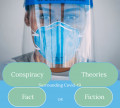Tips for Preventing Colds and Flu

Tis the season to be sick.
According to the Center for Disease Control http://www.cdc.gov/flu/about/qa/disease.htm, flu season in the United States peaks anywhere from late November through March. And with an average of anywhere from 5% - 20% of us annually falling ill to the flu, many people are lining up for flu shots. But are there other alternatives?
While many choose shots, others including me are finding ways to battle holistically. Many years ago I was like most people and got sick on average once or twice a year. My husband and I rarely get sick now and when we do, it’s much milder than those suffering around us and the duration is much shorter. When we feel something coming on, we aggressively treat it holistically. Most often the illness never manifests to more than a day or two of feeling slightly under the weather.
I think part of the problem with accepting alternative treatments is that we demand, and are conditioned to expect, quick fixes. We get an infection and take a course of antibiotics to cure it. Problem solved. Maybe. I don’t have to point out the predicament we've gotten ourselves into fighting every burp, bubble, or sneeze with antibiotics or other pharmaceuticals. The studies outlining the effects of antibiotic overuse are out there for your perusal. You’ve no doubt heard the reports on the evening news.
Some Tips to Stay Healthy
Use your own pen!
According to the CDC flu germs are most commonly spread in respiratory droplets. Generally this is accomplished when someone coughs or sneezes and the droplets are propelled as much as 3 feet in the air and then land on other peoples mouth or nose. Disgusting isn’t it? Though not as frequent, the droplets can also be spread when a person touches their own droplets (as happens when covering their mouth to cough or sneeze) then touches an object. You then come along and touch said object and then your mouth or nose. Yuck again – and sick again too.
Now imagine this scenario. A sick person comes into a store, bank, or other place of business. They cough or sneeze and cover their mouth so as not to spread their germs around. But when they have to sign or fill out something, they use the convenient pen on the counter with their hands that are now highly concentrated with fresh droplets. That pen is now heavily contaminated with flu germs waiting to be spread to others who use that same pen. Ever got sick and have no idea where it came from? I bet it was from a community pen!
Sound a bit over the top to you? This small change resulted in at least a 50% reduction in my illness frequency. Yes, I get some strange looks by people that courteously hand me a pen that I refuse while digging away in my purse for my own. Once I explain the germ issue though, I get looks of instant enlightenment and usually a comment such as, “That’s a great idea. I’m going to start doing that!”
And let’s not forget about grocery store carts. How often do you think those handles get disinfected? You’ve no doubt seen kids in the seats with their mouths or snotty noses all over the things. And sick people do go to the grocery store to get their canned soup and juice. You can apply the above scenario to see how germs are spread here. Either take a cleaning wipe in with you and discreetly use it before you push the cart or refrain from touching anywhere on your person until you get back to your car and clean your hands. If I had small children that needed to sit in the cart, I'd opt for the disinfectant wipes.
Wash your hands!
This one seems like a no brainer but you would not believe the number of people who don’t wash their hands adequately. The CDC recommends more frequent washing with soap and warm water as the main way to ward off flu germs. It also wards off food-related illnesses such as salmonella and E. coli infection. According to the CDC, as many as 76 million Americans get a food-borne illness each year. Of these, about 5,000 die as a result of their illness.
Go into any large public restroom and observe the number of people who leave without washing their hands. Have you noticed that in many public restrooms a trash can sits by the door rather than by the sink? Use it. It does you little good to wash your hands and then use a door handle that’s contaminated by slobs who didn’t wash. Wash your hands, grab a paper towel and turn off the water faucet with the towel. Carry the towel with you and use it to open the door handle. Once the door is open, and using your foot to hold it open if need be, toss the towel in the trash. Don't touch anything in the restroom after you've washed your hands!
These things may seem radical but with the number of flu cases rising, it’s just common sense to take precautions.
Watch your diet!
You hear all the time how important diet is. Let me take it a step further though. A balanced diet isn’t enough. I believe from my own experiences that a diet that’s additive free and low in processed food is equally important. In other words, eat close to the earth, adopting a slow food http://www.slowfoodusa.org/ diet. The fewer steps your food has gone through to get to your table, the better. I found this out when a family member was diagnosed with severe food allergies. I had to throw out nearly everything in my kitchen. I started reading labels religiously and found there were precious few readymade or processed convenient items without the key offenders contained in them.
When we changed our diet to accommodate the allergies of one, we noticed our own health improving. Most of what we eat now is made from scratch. There are no long scientific, unpronounceable words on the labels of the things we eat.
Eating better is a lifestyle change and you have to embrace it and get used to it before it becomes easy. It’s all conditioning and you have to recondition the way you think about and do things. Now that it’s done however, we will never go back to the fast food way of eating. The result of our better health is all we need to convince us to stay away from processed food as much as possible.
Get plenty of sleep!
Uninterrupted and adequate sleep is vital to good health. A lack of sleep has been found to affect the immune and endocrine systems. If you have trouble sleeping, get some help. There are plenty of articles with good tips on sleeping. Here are two sites with good info.
If you do get sick...
As soon as you feel a slight twinge that causes you to ask yourself if you might be getting ill, go into fight mode.
- Start dosing yourself with teas, both herbal (Echinacea) and green. Here's some recipes.
- Take extra vitamins (zinc & C) to help support your body.
- Rest more. De-stress.
- Eat plenty of immune boosting foods such as garlic, onions, broccoli, blueberries, avocados, and shiitake mushrooms.
- Do not eat sugar, lots of fat, or drink alcohol. These lower your immunity. The idea is to strengthen the immune system so it can fight off the illness on its own.
Should you get a flu shot? With an average of 36,000 deaths each year from complications caused by the flu, that is a question best answered through a conversation between you and your health practitioner. I choose not to get flu shots. I have family, friends and neighbors who also choose not to get them. But we also lead very healthy lifestyles and our diets are predominately slow food. The choice is yours.








